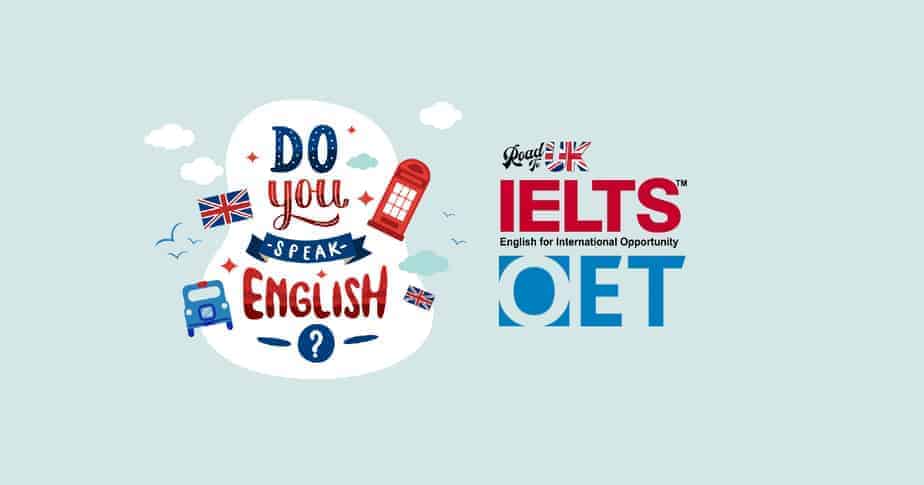IELTS/OET for PLAB, GMC, and Skilled worker visa

The very first step, and arguably the most difficult step to start your career as a doctor in the UK, is taking IELTS/OET for PLAB and GMC registration. There is a good deal of confusion regarding which test to take.
Do I need to take IELTS for PLAB?
When can I take IELTS?
What is OET?
Do I need to take IELTS/OET for PLAB?
Yes and no. After February 6, 2018, if you want to apply for PLAB, you can also take another English language proficiency test called Occupational English Test (OET) instead of IELTS. And that will cover everything from the start to the end.
As a rule of thumb, if you have finished your primary medical graduation in a non-English speaking country, you have to take IELTS/OET for PLAB and GMC registration, even if you are British citizen. There is NO believable way you can prove to GMC that, in a non-English speaking country –
- all the course, including clinical activities, was taught and examined solely in English
- at least 75% of any course related clinical interaction, including personal contact with patients, their families, and other healthcare professionals, was conducted in English.
You also have to take IELTS/OET and subsequently PLAB if you are a non-UK/EEA citizen who have graduated from an EEA university, but don’t have licence to work as a doctor in the that EEA country.
How can I be exempt from IELTS/OET?
As mentioned above, if you have graduated from a non-English speaking country, there is no way to get exempt from IELTS/OET for PLAB and GMC registration. However, for health and care visa you don’t need any valid IELTS/OET as you would already hold GMC registration. Also, you won’t need an IELTS/OET if you are going to the UK for PLAB 2 visa or in skilled worker dependent visa.
When can I take IELTS?
Good. Now we’re talking sense. This test is administered by three different organisations around the would in many venues round the calendar.
- British Council
- IDP Education, Australia
- Cambridge Assessment of ESOL (English for Speakers of Other Languages)
It doesn’t matter under which organisation you take this exam, at the end of the day it’s all the same. People say in some countries one organisation is more liberal than another in comparison. While this might be true, in my opinion one shouldn’t be bothered/biased by that.
Again, IELTS can be-
- Academic
- General Training
- Life Skills
As we’re aiming for professional registration in the UK, we should be appearing in the academic version of IELTS.
You can take IELTS anytime you want. But keep in mind that it stays valid for 2 years only. So planning here is necessary. A more detailed plan is laid out in how to plan for PLAB 1 and IELTS .
What is this “IELTS for UKVI”?
It’s the same test as the IELTS, the only difference is that it is specifically taken for UK Visa purposes. Among the many types of UK visas, PLAB aspirants should be concerned about two types only:
- Standard Visitor Visa (PLAB 2 visa) – It does not require any IELTS/OET
- Health and Care Visa (work permit post-GMC registration) – Your GMC registration is a proof.
Starting from October 1, 2019, IELTS for UKVI will NO LONGER be needed to apply for your health and care visa. You can simply appear in the academic IELTS/OET for PLAB, GMC registration, and health and care visa.
How much do I have to score in IELTS?
The requirements of IELTS for PLAB 1, you must have a minimum of 7.5 score with a minimum of 7.0 in all four modules (listening, reading, writing and speaking) e.g. You got 8 overall but in writing you got 6.5- ergo you’re not eligible.
How much does IELTS cost?
Roughly, IELTS costs around £160. Look up the cost of IELTS (under British Council) by choosing your country on this page of British council website.
What about OET?
As I have mentioned earlier, since February 6 2018, GMC approves another form of English language proficiency test- OET. To know further please look here, Occupational English Test. As of October, 2019 – a valid OET can also be used for health and care visa.
Which is better? IELTS or OET?
Top comparison points between IELTS and OET to note:
- IELTS is cheaper than OET
- IELTS takes place in more countries than OET
- OET doesn’t take place as frequently as IELTS
- Some might feel that preparing for OET is easier than IELTS, as it is medicine and healthcare related
Frequently asked questions
What about English Proficiency when applying for Speciality Training?
Neither IELTS nor OET is needed when you apply for core/speciality training. As you will possibly be working as a non-trainee before you apply for core/speciality training, your supervising consultant can fill a form which testifies your English skills. No further testing is needed in that case.
Do I need IELTS/OET if I apply for the Medical Training Initiative (MTI)?
Yes. You need to have obtained a minimum overall score of 7.5 in the IELTS examination, with minimum scores of 7.0 in all categories. The scores should be obtained in one sitting. The test is valid for 2 years. The certificate must have the original stamp and test report form (TRF) number. And the criteria for OET is Grade B in all modules. The requirement for Medical Training Initiative (MTI) posts is for the purpose of GMC registration.
Do I have to take IELTS/OET for Skilled worker visa (tier 2 visa)?
You do not need to prove your English language proficiency again for Skilled worker visa (previously known as Tier 2 visa) if you had already taken some exam for GMC registration purposes.
Can I take PLAB 1 before IELTS/OET?
No. You will not be able to book PLAB 1 exam without a valid test result of IELTS/OET.

